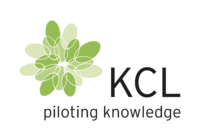Have you ever thought about how crucial recyclability testing is for a greener tomorrow? It’s more important than you might think! This testing is key to figuring out if materials can be recycled and reused effectively, cutting down on waste and saving precious resources. By making sure materials can be repurposed without harming our planet, recyclability testing fuels eco-friendly innovations and helps build a circular economy. And guess what? Companies like KCL are at the forefront, pushing sustainable practices with their top-notch testing and development services.
Getting to Grips with Recyclability Testing in Sustainability
So, what exactly is recyclability testing? It’s a methodical process to see if a material can be recycled efficiently and safely. This means checking if it can be collected, sorted, and turned into new products. Why is this so important? Because it helps spot materials that can jump back into the production cycle, cutting down the need for new resources and slashing environmental impact.
In the world of sustainability, recyclability testing is a must for making sure materials hit the mark for eco-friendly use. It gives manufacturers and developers a clear view of their products’ lifecycle, helping them make smart choices about what materials to use. By focusing on materials that pass these tests, companies are paving the way for a more sustainable future.
At KCL, we’re all about offering a variety of testing services, like repulpability testing, recyclability certification, and even biodegradability (home composting) testing. These services are crafted to back the creation of sustainable materials and ensure they meet the highest environmental standards.
How Recyclability Testing Helps Save the Environment
Recyclability testing isn’t just a buzzword; it has a real impact on saving our environment. By promoting materials that can be recycled and reused, it cuts down on landfill waste and reduces the need for new raw materials, which often come with energy-heavy extraction processes. By making sure materials can be recycled effectively, this testing helps conserve natural resources and lower greenhouse gas emissions.
Plus, recyclability testing aligns with the circular economy principles, where materials are kept in use for as long as possible. This not only reduces waste but also maximizes the value we get from resources. By easing the shift to a circular economy, recyclability testing is a big player in environmental preservation.
Through our testing services, KCL is part of this effort, offering reliable and accurate assessments of material recyclability. Our know-how helps companies make informed choices about their products and processes, leading to more sustainable outcomes.
The Role of Recyclability Testing in Product Development
Recyclability testing is a cornerstone of product development, especially for companies with a sustainability focus. By weaving recyclability testing into the development process, manufacturers can ensure their products are designed with their end-of-life in mind. This forward-thinking approach helps avoid creating products that are tough or impossible to recycle.
During product development, recyclability testing offers valuable insights into material properties and potential recycling challenges. This info lets developers tweak things to boost their products’ recyclability. The result? Products that are not only functional and attractive but also kind to the environment.
At KCL, we back product development with our unique piloting platform and comprehensive lab services. Our expertise in recyclability testing helps companies craft sustainable materials that meet modern market demands.
Challenges in Recyclability Testing for Sustainable Materials
Despite its importance, recyclability testing for sustainable materials isn’t without its hurdles. One major challenge is evaluating the stickiness and usability of recycled fibers, which can impact the quality and performance of recycled products. Plus, the variety of materials and recycling processes can make testing tricky, needing specialized knowledge and equipment.
Another hurdle is the need for standardized testing methods that work across different materials and industries. Without consistent standards, comparing results and ensuring materials meet recyclability criteria can be tough. This lack of standardization can slow down the development of sustainable materials and the move towards a circular economy.
To tackle these challenges, KCL works with the paper value chain and other stakeholders to enhance sustainable solutions. Our dedication to confidentiality, expertise, flexibility, and high quality means we can offer effective testing services that meet our clients’ needs.
Innovations in Recyclability Testing Technologies
Recent breakthroughs in recyclability testing technologies have made it easier to assess material recyclability and boost sustainable practices. Advanced testing methods, like the CEPI recyclability test, PTS-RH 021, TAPPI UM 213, and Michelman repulpability, deliver more accurate and reliable results, helping companies make smart decisions about their materials.
These innovations have also paved the way for large and semi-pilot scale testing, allowing for more thorough assessments of material performance. By mimicking real-world conditions, these tests offer valuable insights into how materials will behave in the recycling process, helping companies optimize their products for sustainability.
At KCL, we’re leading the charge in these innovations, providing cutting-edge testing services that support the development of sustainable materials. Our commitment to eco-friendly innovations ensures we equip our clients with the tools they need to thrive in a rapidly changing market.
How KCL Contributes to Sustainable Testing Practices
As a trailblazer in sustainable testing practices, KCL is committed to advancing eco-friendly material development through comprehensive testing services. Our expertise in recyclability testing, biodegradability testing, and related areas allows us to offer valuable support to companies looking to boost their sustainability efforts.
Our unique piloting platform and lab services let us offer a wide range of testing options, from small-scale assessments to large and semi-pilot scale testing. This flexibility means we can meet our clients’ diverse needs and provide tailored solutions that support their sustainability goals.
By teaming up with the paper value chain and other stakeholders, we drive innovation and enhance sustainable solutions. Our commitment to high quality, confidentiality, and expertise ensures we deliver reliable and accurate testing services that help our clients succeed in their quest for a more sustainable future.
